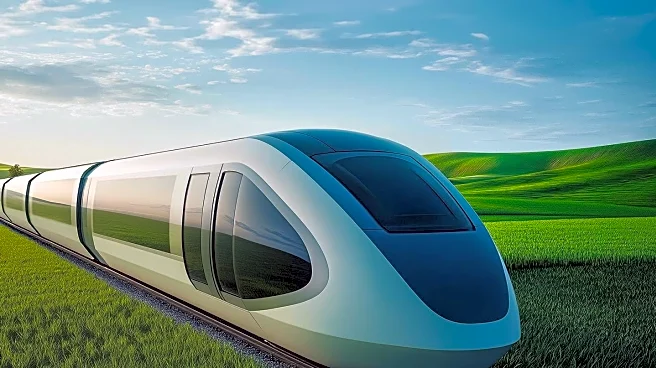What's Happening?
The travel industry is undergoing significant changes as it adapts to new trends and consumer preferences. Sustainable tourism is gaining traction, with travelers increasingly opting for eco-friendly options that minimize environmental impact. This includes
carbon-neutral flights and eco-lodges. Technology is also playing a crucial role, with virtual reality and augmented reality transforming destination marketing, and contactless check-ins and AI-powered chatbots enhancing the travel experience. Domestic travel has seen a boost due to pandemic-related challenges in international travel, encouraging travelers to explore local destinations. Wellness retreats and mindfulness workshops are becoming popular as travelers seek experiences that prioritize well-being. The concept of 'workations' is emerging, blending work and leisure as remote work becomes more common. Personalization and authentic experiences are in demand, with travelers seeking unique itineraries that immerse them in local cultures. Flexibility in travel plans is now a priority, with companies offering adaptable policies to meet changing consumer needs.
Why It's Important?
These developments in the travel industry reflect broader societal shifts towards sustainability, technology integration, and personalized experiences. The rise of sustainable tourism highlights growing environmental awareness and the demand for responsible travel options. Technology-driven experiences are reshaping how travelers interact with destinations, offering more immersive and convenient options. The boost in domestic travel supports local economies and encourages appreciation of local attractions. Wellness and mindfulness retreats cater to the increasing focus on mental health and self-care. The emergence of workations reflects the changing nature of work and leisure, offering new opportunities for remote workers. Personalization and authentic experiences indicate a shift away from traditional tourism towards more meaningful and culturally immersive travel. Flexibility in travel plans addresses consumer concerns in an uncertain world, providing peace of mind and encouraging travel planning.
What's Next?
The travel industry is likely to continue evolving with these trends, focusing on sustainability, technology, and personalization. Companies may invest more in eco-friendly initiatives and technological advancements to meet consumer demands. The popularity of domestic travel may lead to increased promotion of local destinations and experiences. Wellness and mindfulness retreats could expand, offering more diverse options for travelers seeking self-care. The concept of workations may grow, with more accommodations providing facilities for remote work. Travel companies may further adapt their policies to offer greater flexibility, ensuring they remain competitive in a changing market. As these trends develop, the industry will need to balance innovation with customer-centric approaches to thrive.
Beyond the Headlines
The shift towards sustainable tourism and technology-driven experiences may have long-term implications for the travel industry. Ethical considerations around environmental impact and cultural preservation will become increasingly important. Legal frameworks may evolve to support sustainable practices and protect local communities. Cultural dimensions of travel will be emphasized as travelers seek authentic experiences, potentially leading to greater cultural exchange and understanding. The integration of technology in travel may raise privacy concerns, requiring careful management of data and consumer trust. Long-term shifts in work and leisure dynamics could redefine travel patterns, influencing economic and social structures globally.















